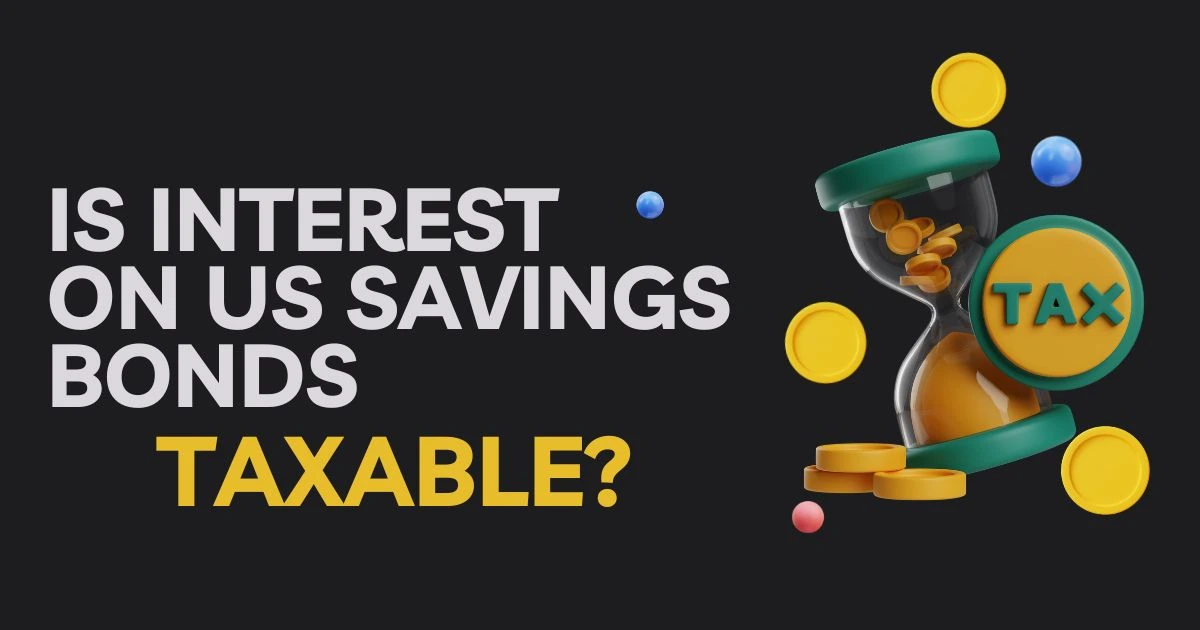Is Interest on US Savings Bonds Taxable?
US savings bonds are a popular choice for risk-free investing, especially for those looking for a safe way to grow their money over time. But when it comes to taxes, many investors wonder – is the interest earned on US savings bonds taxable?
The short answer is yes, but it depends on a few factors, such as how and when the interest is reported and whether the bonds are used for specific purposes like education. Let’s break it all down in simple terms.
1. How is Interest on US Savings Bonds Taxed?
Interest earned on US savings bonds is subject to federal income tax but is exempt from state and local taxes. This means:
- You don’t have to pay state or local taxes on the interest.
- You do have to report and pay federal income tax when the interest is recognized.
The tax treatment applies to both Series EE and Series I savings bonds, which are the most commonly purchased bonds by individuals.
2. When Do You Pay Taxes on US Savings Bonds?
You have two choices for when to pay tax on your bond interest:
A. Pay Taxes When the Bond Matures (Default Option)
Most bondholders defer taxes until they cash in the bond or it matures. This means:
- No tax payments each year while the bond earns interest.
- Full tax payment on all accumulated interest when the bond is redeemed or reaches its final maturity date.
B. Pay Taxes Every Year (Optional Method)
Some investors choose to report interest annually instead of deferring taxes. This approach:
- Spreads out tax payments over multiple years.
- Can be beneficial if the investor expects to be in a lower tax bracket.
- Requires consistency – once chosen, it must be applied to all savings bonds owned.
3. Are There Any Tax Exemptions for Savings Bond Interest?
Yes, under the Education Savings Bond Program, interest on Series EE and I bonds may be completely tax-free if:
- The bonds are used to pay for qualified higher education expenses (tuition, fees, etc.).
- The bondholder meets specific income eligibility limits.
To qualify, the bonds must:
- Be issued in the owner’s name (not a child’s name).
- Be redeemed in the same year as the education expense.
4. Reporting Savings Bond Interest on Taxes
When it’s time to report the interest:
- The US Treasury or your bank will issue Form 1099-INT, showing the total taxable interest.
- The interest is reported on your federal income tax return (Form 1040).
- If the education tax exclusion applies, it must be reported using Form 8815.
5. Key Takeaways
- US savings bond interest is taxable at the federal level but exempt from state and local taxes.
- Most people defer taxes until bond redemption or maturity.
- Interest may be tax-free if used for education under certain conditions.
- Taxes are reported on Form 1099-INT and included in Form 1040.
Handpicked Reads You Might Like: Difference Between Mutual Funds and Index Funds
By understanding how taxes work on US savings bonds, investors can make informed financial decisions and potentially reduce their tax burden through smart planning.
FAQs on Taxation of US Savings Bonds
1. Is interest on US savings bonds taxable?
Yes, interest earned on US savings bonds is subject to federal income tax. However, it is exempt from state and local taxes.
2. When do I have to pay taxes on my US savings bond interest?
You have two options:
Defer taxes until the bond is cashed or reaches final maturity (default option).
Report and pay taxes annually on the interest earned each year (optional).
3. Are there any tax exemptions for US savings bond interest?
Yes, under the Education Savings Bond Program, interest may be tax-free if the bonds are used to pay for qualified higher education expenses and the bondholder meets certain income eligibility criteria.
4. How do I report savings bond interest on my taxes?
- The US Treasury or your bank will issue Form 1099-INT showing taxable interest.
- You must report this on your federal income tax return (Form 1040).
- If eligible for an education tax exemption, Form 8815 must be used.
5. Do state and local taxes apply to US savings bond interest?
No, US savings bond interest is exempt from state and local taxes.
6. Which US savings bonds are subject to federal taxes?
Both Series EE and Series I savings bonds are subject to federal income tax when the interest is recognized.
7. Can I change my tax reporting method for savings bond interest?
If you choose to report interest annually instead of deferring taxes, you must apply this method to all savings bonds you own, and the IRS requires consistency.
